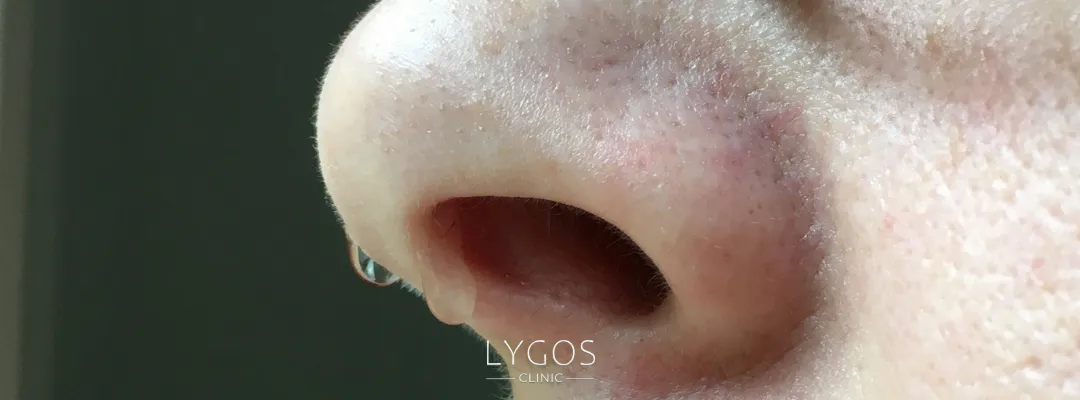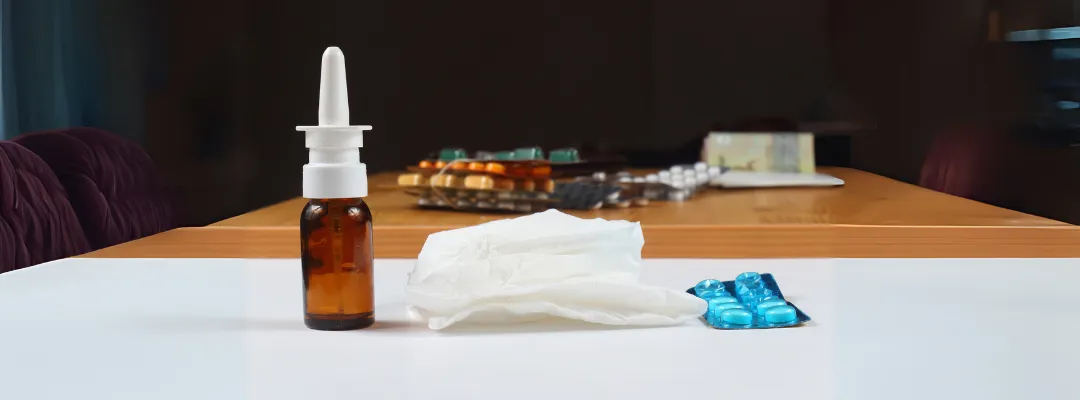How to Stop a Runny Nose? | What is Rhinorrhea? | LYG 2025

How to Stop a Runny Nose?
Rhinorrhea, often referred to as a runny nose, involves an excessive release of mucus from the nasal passages. A runny nose can result from various causes, including infections, allergies, or contact with environmental irritants. Although a runny nose is typically harmless, it can sometimes cause discomfort and inconvenience. Managing the symptoms of a runny nose is important to improve comfort and overall well-being. This article explores the causes, potential complications, and effective treatments for rhinorrhea, helping you learn how to stop a runny nose and prevent it from recurring.
What is Rhinorrhea (Runny Nose)?

This condition arises when the mucous membranes within the nasal cavity produce mucus in excessive amounts. The consistency of the mucus may vary, ranging from thin and watery to thick and sticky, depending on the underlying cause. Rhinorrhea, or a runny nose, is often the body’s natural response to irritants, infections, or allergens affecting the nasal passages.
It is a condition that usually resolves on its own but can sometimes indicate an underlying health issue. Addressing what is rhinorrhea (runny nose) can help people understand its symptoms and why it occurs. Learning how to stop a runny nose is crucial in managing this common condition effectively.
How Does Rhinorrhea (Runny Nose) Happen?

Rhinorrhea occurs due to irritation or inflammation of the nasal lining, which leads to increased mucus production. This process is often the body’s way of flushing out irritants or fighting infections.
This process begins when the blood vessels in the nasal passages dilate, triggering an overproduction of mucus. Typical triggers include viral illnesses such as colds or the flu, as well as allergic responses. Environmental factors, like exposure to smoke, also explain how rhinorrhea (runny nose) happens.
By understanding how rhinorrhea (runny nose) happens, individuals can better identify the triggers and apply remedies to alleviate their symptoms. Discovering how to stop a runny nose involves addressing these triggers directly.
Can a Runny Nose Cause Complications?
Although a runny nose is generally mild, it can sometimes lead to complications.
Yes, conditions like sinus infections and ear infections may arise if mucus builds up in the sinuses or ear canals. Chronic rhinitis, or ongoing nasal inflammation, is another possible issue. Additionally, sleep disruptions caused by continuous mucus drainage show how a runny nose can cause complications in daily life.
By understanding the complications a runny nose can cause, people can take proactive measures to reduce risks. Knowing how to stop a runny nose can prevent these complications and promote better overall health.
What Causes a Runny Nose?
The causes of rhinorrhea are varied and include infections, allergies, and structural issues.
Viral illnesses, including the flu and common colds, are the most frequent reasons for experiencing a runny nose. Allergic reactions to pollen, dust, or pet dander also explain what causes a runny nose. Structural issues, like a deviated nasal septum or nasal polyps, further contribute. Hormonal changes and certain medications add to the list of what causes a runny nose.
Understanding these factors is a vital step in figuring out how to stop a runny nose effectively.
How is a Runny Nose Treated?

Treating a runny nose depends on addressing the underlying cause.
Over-the-counter remedies, such as decongestants and antihistamines, are common solutions. For allergy-related cases, antihistamines block histamine release, showing how a runny nose is treated. Home remedies, like steam inhalation or saline nasal sprays, can provide effective relief in many cases.
For chronic or severe cases, medical options such as corticosteroids or surgical interventions may be necessary. By understanding how a runny nose is treated, individuals can find effective ways to manage their symptoms and learn how to stop a runny nose more quickly.
How Can I Stop a Runny Nose?

Stopping a runny nose involves a combination of immediate relief and prevention.
Start by gently blowing your nose to clear mucus and applying warm compresses to reduce inflammation. Nasal strips can improve airflow, offering another solution for how you can stop a runny nose. Preventive measures, like frequent handwashing and avoiding allergens, explain how to stop a runny nose in the future.
By staying hydrated and maintaining a strong immune system, you can better understand how to stop a runny nose and keep symptoms at bay.
A runny nose, though common, can be managed effectively by understanding its causes and remedies. Whether exploring what causes a runny nose or learning how to stop a runny nose, the right approach can alleviate discomfort and prevent complications.
By using home remedies, medications, and lifestyle changes, you can take control of your symptoms and discover the best ways to stop a runny nose.


